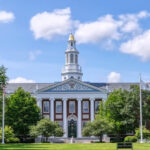Giving George His Due
He may be on Mount Rushmore and on the dollar bills we spend regularly, but a startling number of Americans, particularly young ones, do not know who George Washington is. “In a survey of teenagers conducted by Colonial Williamsburg, one in 10 teens didn’t know that George Washington was the first president of the United States,” Anne Neal, the president of American Council of Trustees and Alumni (ACTA), told a congressional committee on February 29, 2012.
Neal urged a subcommittee of the U. S. House Committee on Oversight and Government Reform to return George Washington’s birthday to his real birthday of February 22nd. “There was a time in the past when we did celebrate George Washington’s birthday,” Neal reminded the members of the subcommittee on Federal Workforce, U. S. Postal Service and Labor Policy. “But now it is engulfed in a meaningless President’s Day—more focused on mattress discounts and car sales than the great heroes of our past.”
“In conjunction with lagging test scores across the board for graduating high school seniors, she noted there have been disturbing trends of the history knowledge of U.S. students about their own nation. This forms the basis for her recommendation to separate Washington’s birthday from President’s Day.
According to various sources which she cited, only 12% of high school seniors have a “proficient” score in historical knowledge while 55% of seniors have a below-basic historical knowledge. Current cultural figures such as Snoop Dogg are more recognizable to up-and-coming generations than George Washington.
Most colleges and universities do not require a “survey” (or a course) in American history, Neal pointed out. For example, in Washington’s home state of Virginia, only James Madison and Regent Universities require a history survey of their graduates.
About 80% of U.S. colleges do not require their students to take a foundational course in American history. Only 34% of seniors recognized George Washington as the general in the Battle of Yorktown, with 37% believing it was Civil War Commander Ulysses S. Grant, 22% believing it was General William Sherman of the same conflict and 6% thinking it was World War II hero Douglas MacArthur.
Though these surveys show her argument is valid, it is disconcerting that the ACTA president had to go out of her way to make an important point that students are becoming less familiar with U.S. history. It may explain the emergence of the Tea Party in recent years as an attempt to go back to America’s political roots. As George Washington himself stated, “A primary object should be the education of our youth in the science of government…And what duty is more pressing than communicating it to those who are to be the future guardians of the liberties of the country.” Neal’s testimony before Congress can give pause and reflection on the meaning of U.S. holidays. Today it may seem to be more a commercial event or a reason for a vacation for families and Neal’s push to separate George Washington’s birthday could be seen as a first step to restoring a sense of American history in the younger generations.
Spencer Irvine is a research assistant at Accuracy in Academia.
If you would like to comment on this article, e-mail contact@academia.org.




